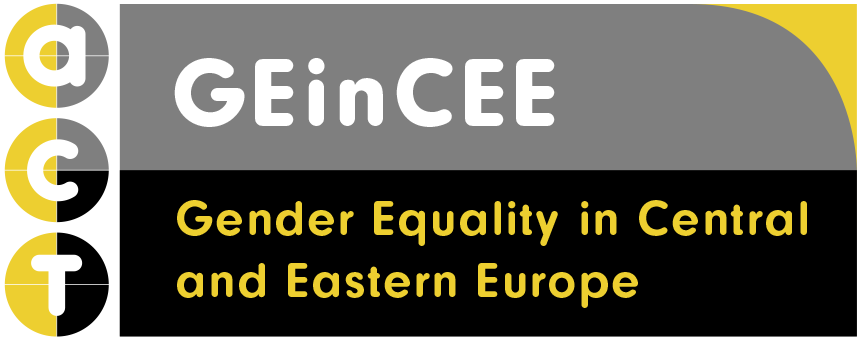
In our recent pre-holiday gathering in May 2023, members and supporters of GEinCEE CoP came together to delve into a discussion on female academics’ careers. It was a session that shed light on the challenges, achievements, and ongoing efforts to advance gender diversity in scientific fields.
Central to this dialogue were two books authored by individuals associated with our Community of Practice. Anna M. Górska from Kozminski University and Anna Knapińska from National Information Processing Institute shared their works, and their publications served as the focal points for our conversation, offering perspectives on the complex landscape of women in science. Both authors painted an intricate portrait of the experiences, hurdles, and triumphs women face in scientific careers. The conversations ranged from strategies to bolster female representation in scientific roles to actionable steps in creating a more inclusive environment.
Gender and Academic Career Development in Central and Eastern Europe by Anna M. Górska, published by Routledge in 2023, is an exploration into the role and challenges faced by women in the academic environment of Central and Eastern Europe (CEE). Based on qualitative research that included interviews with 53 female academics in the CEE region, the book offers an in-depth analysis, structured into four main parts, each focusing on distinct aspects of women's roles and experiences in the academic realm. The book is divided into four parts, each delving into a different aspect of gendered higher education in CEE.
In the first part, the reader is introduced to the historical context of higher education in the region, particularly emphasizing the influence of communism and the introduction of the ‘Soviet model’ of education. A significant component of this part is the examination of the gendered organization concept, where Górska explores gender-related issues, pointing out inequalities in women's access to science and the challenges of balancing professional and personal lives.
The second part is dedicated to the challenges women encounter at various stages of their academic careers from early career PhD students to senior career full pressors and emerita. Górska details the ‘invisibility’ barrier, the hierarchical structure of academia, and the myriad difficulties women face at each of the career stage.
In the third part, the focus is on the practical roles of women in academia, spanning from research to teaching and administration. The author highlights the imbalance created by the rising expectations linked to university rankings and accreditations and the lack of support for staff. Górska analysis each of the academic obligation separately shedding more light onto changing requirements of the institutions and their gendered outcomes.
The final, fourth part provides a comprehensive analysis of the contemporary and prospective challenges of the academic environment in the context of the NPM logic. Górska diagnoses chaos and uncertainty in the higher education sector of Central and Eastern Europe, presenting both the consequences of these changes and potential solutions. This part also includes a set of ten recommendations for policy makers, higher education managers and academics themselves on how to support better inclusivity and undo gender in institutions of higher education.
Conclusively, this book is a rich resource for anyone interested in the topic of gender equality in academia, especially focusing on Central and Eastern Europe. Relying on thorough research, Górska not only identifies issues but also proposes tangible solutions that could lead to a more equal and inclusive academic environment.
Kobiety w technonauce. Biografie zawodowe profesorek (available in Polish, English title: Women in Technoscience. Professional biographies of female professors) by Anna Knapińska, published by the National Information Processing Institute in 2022 delves into the underrepresentation of women in the power structures of sciences, particularly in influential spheres with anticipated economic gains. Technoscience, a fusion of science and technology rooted in laboratory work, forms the focal point of this exploration, aligning with post-constructivist sociology of knowledge.
Knapińska explores how the social construction of the technoscience field impacts the presence of women holding the title of professor in contemporary Poland. Drawing from Robert K. Merton’s concepts of normative and opportunity structures, the book investigates the significance of gender in technoscience.
The initial chapters offer a theoretical analysis of the gender dynamics within technoscience, while the subsequent section outlines the methodological framework, particularly employing Fritz Schütze's biographical approach. The core of the book lies in the qualitative analysis of twelve autobiographical narrative interviews, dissecting the normative and opportunity structures within technoscience biographies and their reflections in individual beliefs.
Knapińska categorizes five ideal types of professional biographies based on the narratives and perspectives of the interviewees, identifying commonalities and unique elements among them. The study also highlights factors that either facilitate or impede women from accumulating scientific symbolic capital, revealing a hierarchical differentiation of statuses that influences opportunities in the technoscience field.
Research outcomes affirm the thesis of gender biases in Polish technoscience. Within the normative structure, female professors conform to masculinized expectations rooted in scientific ethos, prioritizing their scientific identity over gender identity. The narratives of these women expose the inequality prevailing in the field, reflecting an ‘arrhythmia’ in the opportunity structure where women face relatively fewer prospects for scientific success compared to men.


